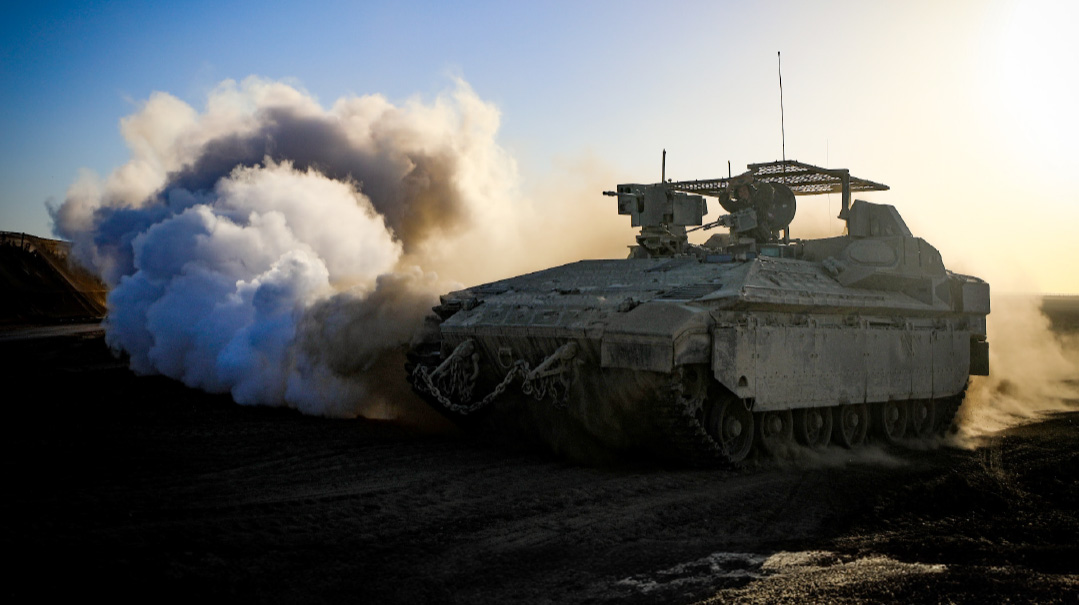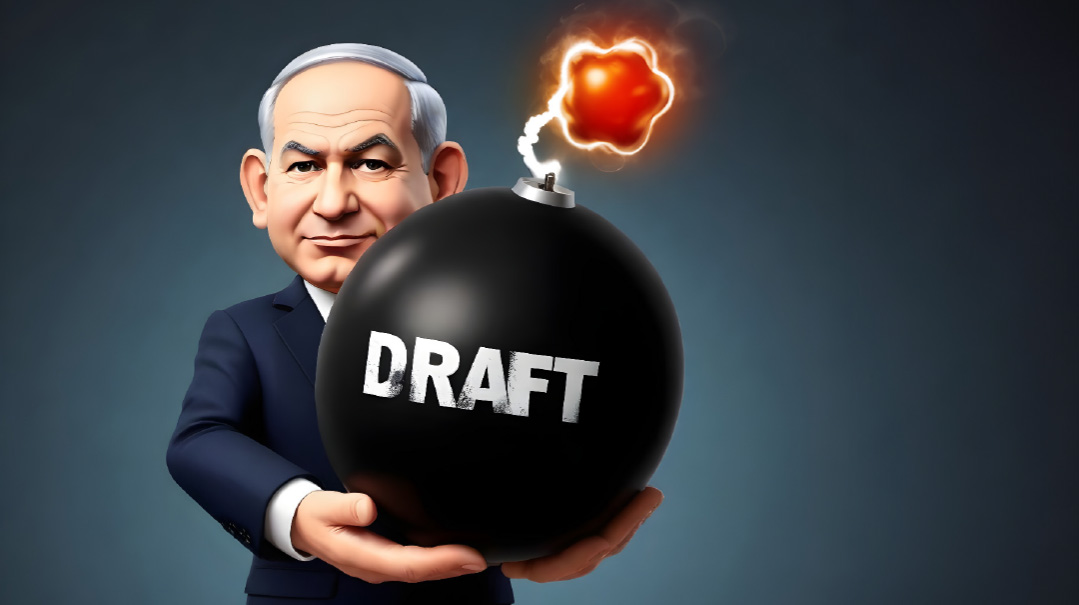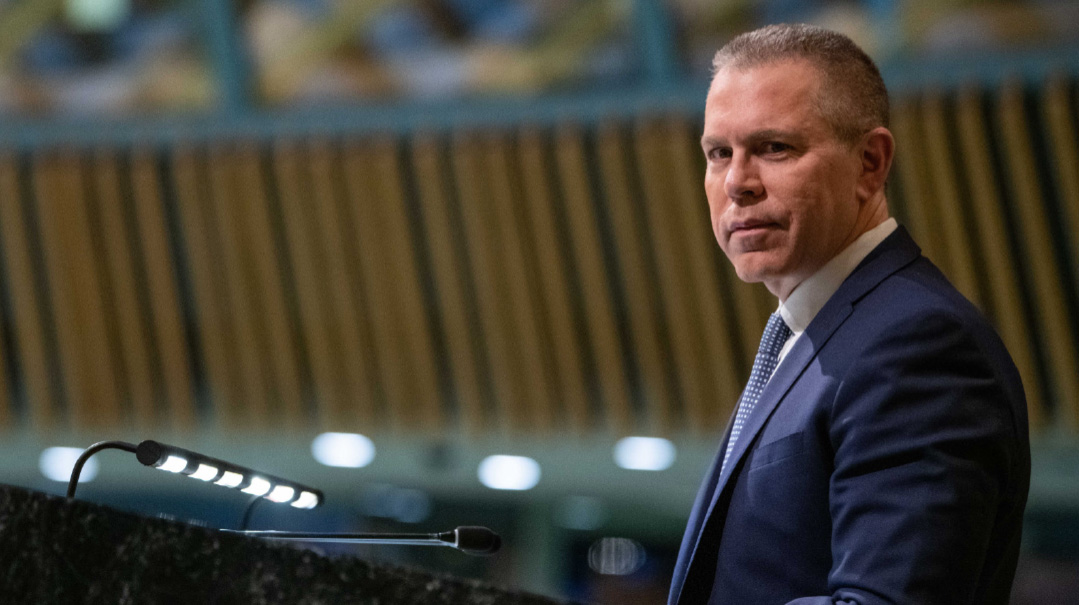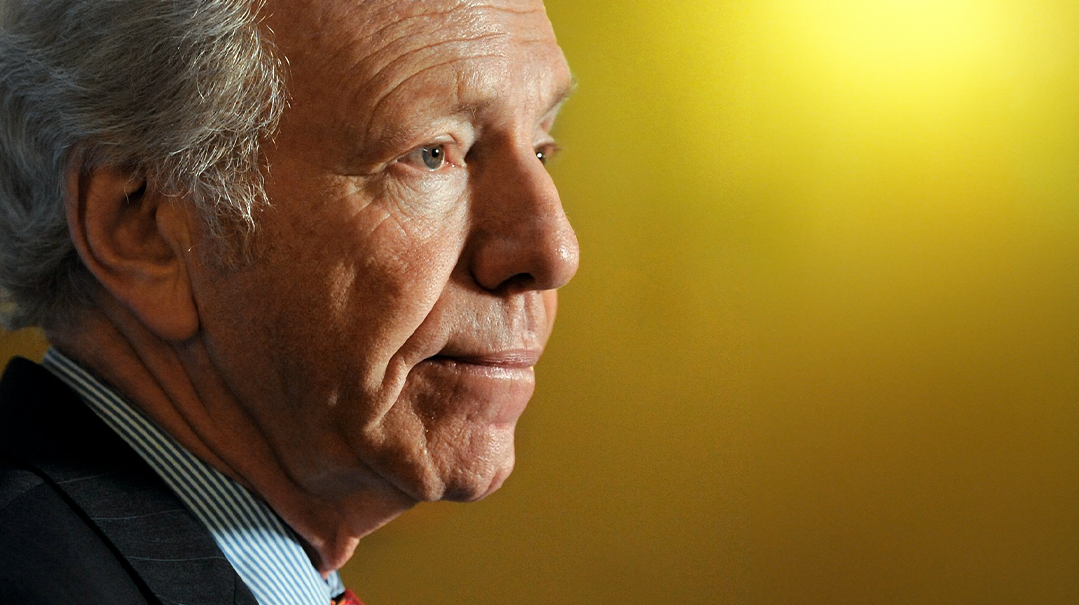Nuclear Fallout

Israeli experts are split whether the new deal is merely bad, or a ticking time bomb of a disaster
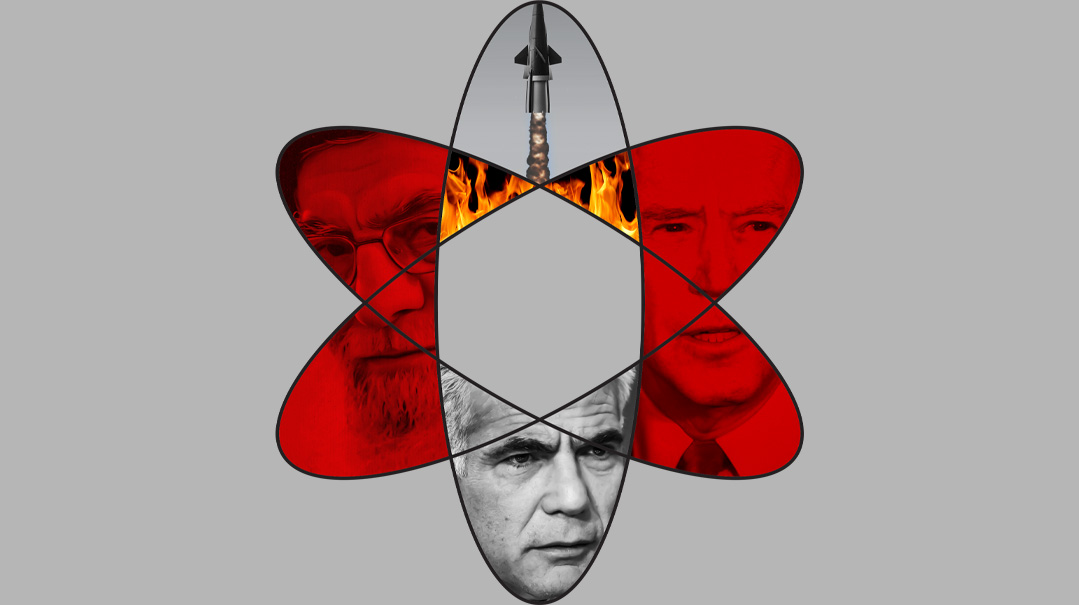
Photos: AP Images; Flash 90
Even as Israel’s skies are filled with the thunder of jets training to attack Iran’s nuclear program, the Biden administration looks set to return to the agreement – with Tehran as a threshold nuclear power. But Israeli experts are split whether the new deal is merely bad, or a ticking time bomb of a disaster.
Miles above Israel’s towns and cities, the decades-long shadow campaign against Iran is playing out.
For the hundreds of thousands of Israelis who live within the vicinity of military airfields, the thunder of jet engines as fighter planes take off is nothing new. Predawn, midday, dusk, the sleek gray planes vanish into the heavens, landing lights winking and afterburners flaring.
What they do up in the blue yonder is classified. But according to a steady stream of media reports — domestic and foreign — as well as striking Iranian proxies to Israel’s north, the Israeli Air Force is intensively drilling an attack on the Islamic Republic itself. The IAF’s new stealth jets have penetrated deep into Iranian airspace, probing the country’s defenses.
Whether those planes actually end up dropping their payloads on Iran’s reinforced nuclear sites has just gotten more likely, or far less so, depending on your perspective on the new “Iran Deal,” whose signing is believed to be a question of time.
As of this writing, the negotiations between Iran and the US are proceeding slowly. The two countries are still at variance on key issues, and it may take weeks to resolve the disagreements. Still, Israel believes that Iran will ultimately sign the deal, because it’s in Iran’s interests to do so. The deal will enable it to rebuild its economy while stepping up its sponsorship of terrorist groups across the Middle East and expanding its influence in the region. Israel’s years-long campaign against Tehran’s proxies may have slowed Iran’s plans, but has not derailed them.
Senior defense figures say that if one looks at Israel’s approach over the past 15 years, one sees that despite countless campaigns and operations, Iran’s grip on the Middle East — Syria, Lebanon, Gaza — has only tightened. This is Iran’s strategy: applying sustained pressure to wear down Israel’s military and morale, until it has no choice but to accept Iran’s presence in the region.
That long-term strategy, together with American weakness, has led to an Iran that is now a threshold nuclear state.
A senior defense official I spoke to last week told me that according to information in Israel’s hands, Iran is weeks away from acquiring the ability to convert its nuclear abilities into an effective nuclear weapon. The deal, as far as Israel is familiar with its contents, is estimated to delay the tipping point by six months.
Prime Minister Yair Lapid spoke for the Israeli consensus when he termed the agreement a “bad deal” for Israel.
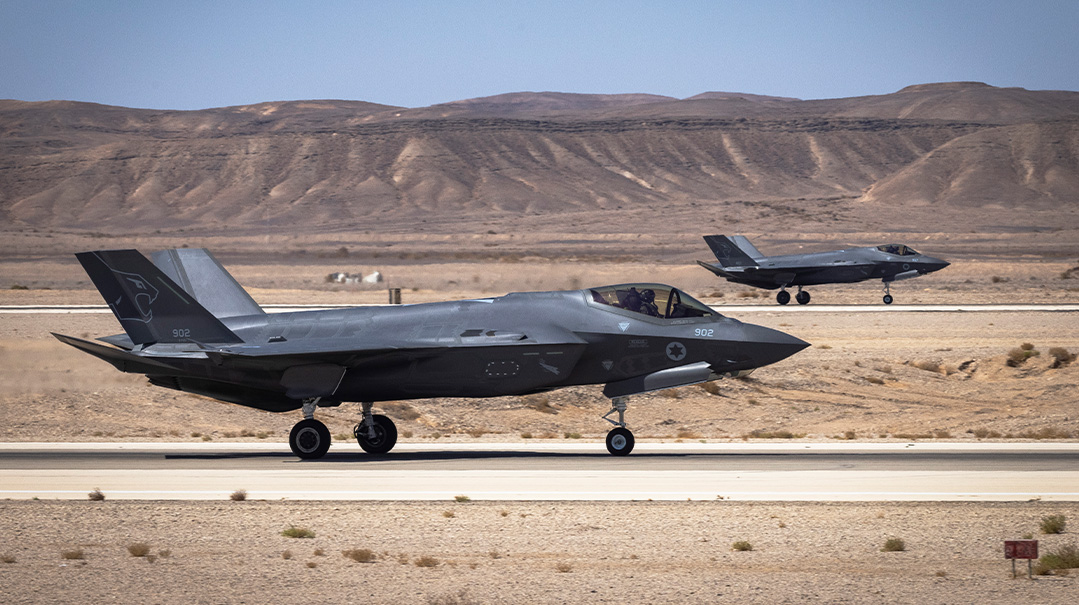
Israeli F-35s have penetrated Iranian airspace, but will the deal clip their wings?
“It would give Iran a hundred billion dollars a year,” he said. “This money will not build schools or hospitals. This is a hundred billion dollars a year that will be used to undermine stability in the Middle East and spread terror around the globe.”
But that consensus hides significant differences, which divide Israeli decision makers into two broad camps.
Opponents of the deal in Israel’s leadership believe that they can live with the current situation, in which Iran is very close to breaking out to a bomb, on the assumption that Israel’s secret campaign of targeted assassinations and sabotage will be able to keep Iran at a relatively safe distance from the nuclear threshold. In the event that the threshold is reached, Israel and the US will have advance knowledge and enough time will be left to take action to deal with the threat. Additionally, without a deal, Iran will be deprived of hundreds of millions of dollars that it could use to cause serious security issues on our doorstep in Syria, Lebanon, and Gaza.
In a media briefing last week, Mossad chief David Barnea said that an overwhelming majority in Israel’s security establishment is opposed to a deal and is willing to express this in public to preserve Israel’s freedom of action vis-à-vis Iran. If Israel doesn’t publicly oppose the deal now, he says, it won’t have the legitimacy to act after it’s signed. In the briefing, he emphasized that the entire security establishment supports his position, adding as an aside that IDF chief of staff Aviv Kochavi, who previously saw positives in a nuclear deal, came around to his position a few months ago.
Barnea’s words were very calculated, including that little side note about Kochavi. The Mossad’s position is not necessarily accepted by senior figures in the Military Intelligence Directorate or by other senior military figures.
Head of the IDF Operations Directorate Maj. Gen. Aharon Haliva, head of the Amman research department Amit Saar, and director of the political-military affairs bureau in the Defense Ministry Dror Shalom have said in their conversations with the political echelon that there are strategic positives for Israel in a deal.
The pro-deal camp argues that it will stop Iran’s rapid march to the bomb, hold back the nuclear program, and extend Iran’s breakout time — the amount of time it will take them to produce enough enriched uranium to construct an atomic bomb. They add that a deal will buy Israel time to prepare for military strikes against Iran’s nuclear installations — something Israel is not yet quite ready for.
Both sides of Israel’s critical strategic debate were on display in an extensive set of interviews with leading Israeli decision-makers. I asked: Under what circumstances should Israel initiate a strike? How does the current deal differ from its predecessor? And what could be the consequences of a direct strike on Iran?
There’s only one critical question that Israel’s security experts aren’t prepared to publicly discuss, which is whether the jets roaring above Beit Shemesh and Be’er Sheva can really do the job.
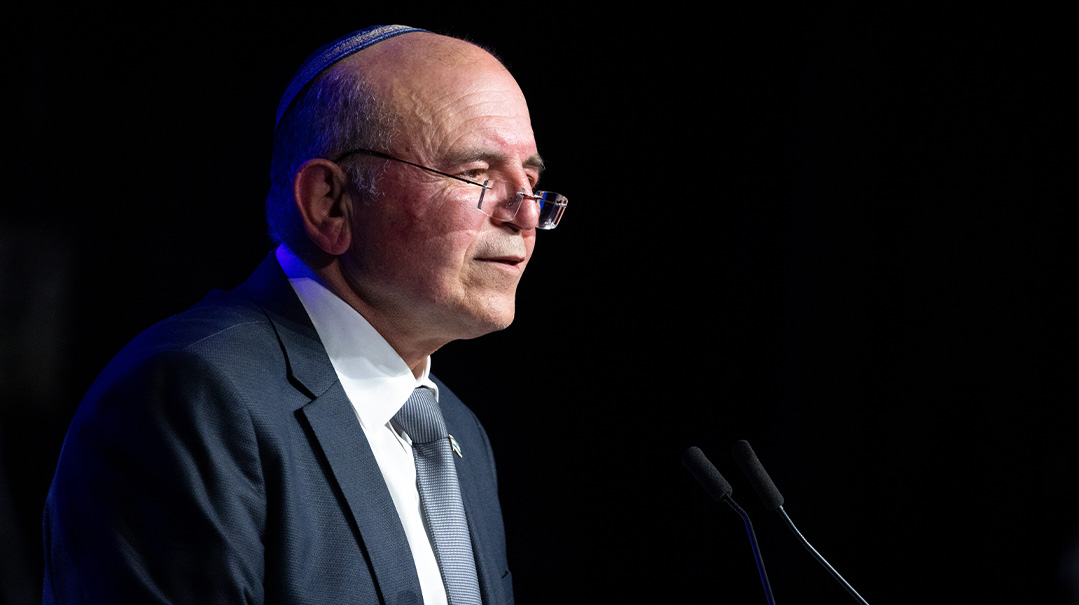
Meir Ben-Shabbat
Former head of the Shin Bet’s southern district; until last year, head of the National Security Council
As head of the national security council under Bibi Netanyahu until last year, you were part of the team that pushed the Trump administration to abandon the previous incarnation of the Iran Deal. Is this a different beast?
“No, this is essentially a return to the previous deal pushed by the Obama administration, except that in the interval, the world learned that Iran lied about its nuclear program. Iran, for its part, ignored the Trump administration’s warnings and took measures to advance its nuclear project. Let me put it this way: It’s like a coat that didn’t fit to begin with, and you hand it back to the wearer, who’s grown in the meantime.”
For years, Netanyahu warned that the Iran Deal was bad, a position that’s now widely accepted. But let’s understand, why is Biden’s re-warmed deal so bad?
“If the deal is in fact signed, it will pave Iran’s path to a nuclear weapon once the restrictions expire in a few years; it will give Tehran a zero-breakout time to fissionable material, allow it to continue uranium enrichment and arms dealing in secret, and free up billions in Iranian funds. [That is,] all the money frozen in the wake of Trump’s sanctions, which it will use for military buildup. At the same time, it allows the world to trade with Iran in illegal substances, and it contains no levers that could be used to force it to come to a longer and stronger deal as the Americans originally wanted.
“And at the same time, we can’t forget: Iran has a vision. The nuclear project, as well as the funds that will become available, will be employed to advance that mission.”
Let’s imagine that Israel’s nightmare comes true, and that Iran successfully goes nuclear. What does the region look like then?
“Iranian hegemony in the region will be felt on every level. Iran wants to grow stronger to realize its vision: influencing and imposing its Islamic worldview on the entire region. As long as it’s preoccupied with existential problems and diplomatically isolated, it struggles to do this. The moment the deal frees it from its diplomatic isolation and frees up its monies, it will be able to significantly increase its actions to expand its influence. It will send money and weapons to its proxies, and push them to act much more aggressively. In every area, it will be perceived as a much more significant threat to the countries of the region, who will have to take that into account in every area.
“This is in addition to aggressive handling of proxies, such as Hezbollah in Lebanon and the Houthis in Yemen, out of a feeling of self-confidence and an abundance of resources. In addition, the entire region, including Egypt and other countries, will enter a nuclear arms race.”
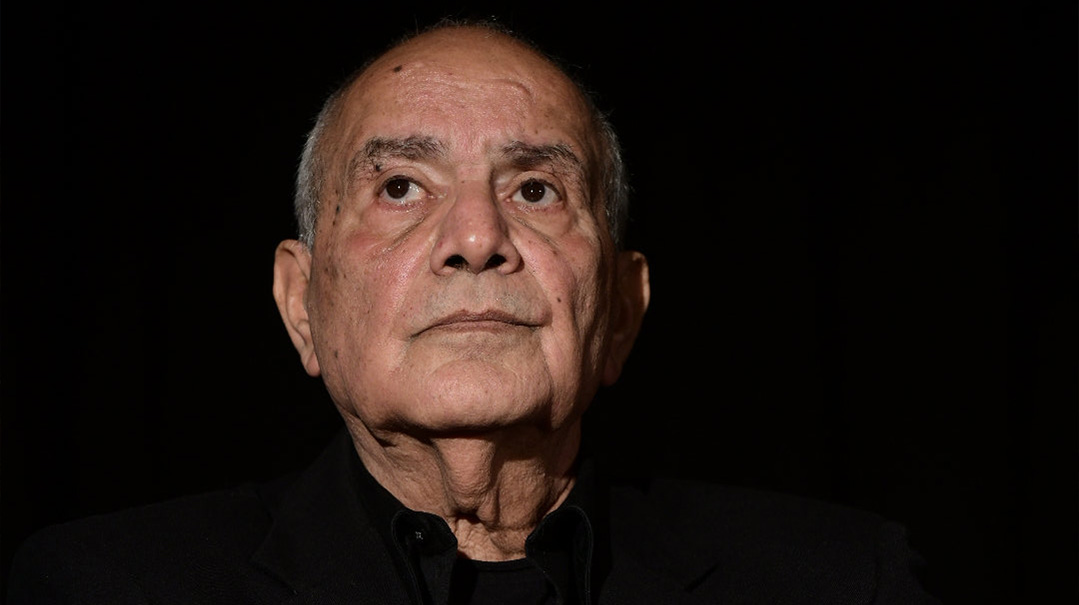
Dan Halutz
Former IDF chief of staff
As military chief in the Second Lebanon War — one in which an unprepared IDF proved unable to shatter Hezbollah — former chief of staff Dan Halutz has had the painful experience of fighting an Iranian proxy.
“We should appreciate Prime Minister Lapid’s efforts at damage control regarding the Iran deal,” he says, “and in my opinion, he’s working very hard, but at the same time, we have to internalize that Europe and the US are going to sign a deal at the end of the day, because the world wants a nonviolent way to find a workable solution to this issue. Bad deals are better than good wars.”
Does Israel have the ability to prevent Iran from becoming a nuclear state?
“I don’t think any deal could keep a country that’s determined to achieve something from achieving it. If Iran decides that having a bomb is a vital national interest, they’ll get it. We have to look at the opportunities and not just at the risk. The risk is real — a nuclear Iran is a very bad thing. An Iran that’s signatory to a deal and is subject to inspections… is a little bit better. Slowly, slowly, it will become possible to get from one deal to another, and Iran will be put to the test. I think we need to accept the fact that the US and Europe will sign a deal with Iran, and we have to prepare for this.”
Is the US not as friendly as it used to be?
“Israel is the one that needs America, not the other way around. We have to view our relations with the US as of the first importance. Israel and America face many other issues in the region. Quiet and discreet diplomacy is preferable to a public spat.”
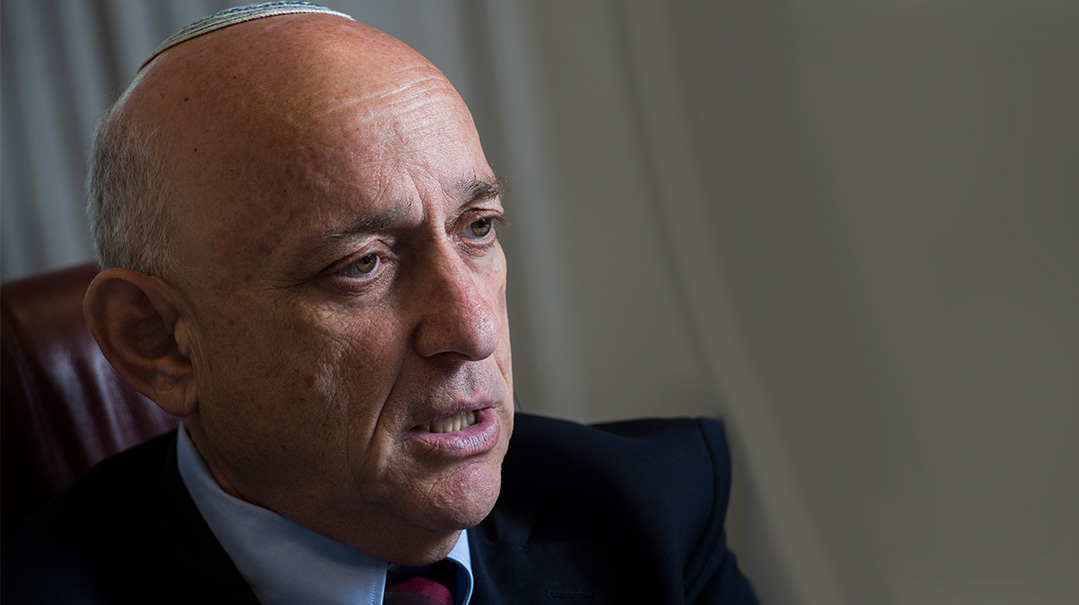
Yaakov Nagel
Brigadier general (res.), former national security advisor, senior fellow in the Foundation for Defense of Democracy, Washington, D.C.
Brig. Gen. Yaakov Nagel is convinced that “Israel has failed to make the case against the nuclear deal to the Biden administration, and this is why the Biden administration continues doggedly making one mistake after another and charging toward a deal. It’s being helped in this by irresponsible voices among senior Israeli officials, retired and incumbent, in illegal briefings and meetings with counterparts abroad, contrary to the official government line.”
Is the political echelon making itself heard?
“For the most part, the political echelon is working hard, despite claims that it’s not speaking loud enough through every available medium to get the message across to the US. In a democracy, those charged with executing the decision-makers’ decisions need to fall in line. The Iranian and American rhetoric is tough — both sides are preparing their public for a return to the deal by emphasizing their achievements and downplaying their concessions, but sadly, Iran’s propaganda is closer to the truth.”
Does Israel have the ability to destroy the Iranian threat?
“I won’t enter into operational details. The Europeans added substantial concessions to their offer, and the Iranian response was that they might be willing to entertain it, but first they threw it back to the Americans to get just a few more concessions. In reality, the deal is not yet final and has yet to be signed, presumably because the Iranians, as usual, are trying to secure last-minute concessions. Washington expected a signing to be announced at the end of last week, but this hasn’t happened yet due to Iran’s obstinacy.”
How does the current deal differ from the one reached by Obama?
“We’ll start with the fact that through most stages of the negotiations, he was led on by Russian president Vladimir Putin and his envoy to IAEA, Mikhail Ulyanov. Russian continues attacking in Ukraine, with Iran helping her both with weaponry and with advice on bypassing sanctions. Despite this, the US and Europe continue slavishly following his line of a deal at any price, and Russia and China and are watching with enjoyment as Iran humiliates them. I wonder how long the Americans and Europeans will continue turning the other cheek?
“As to your question, the deal taking shape is much worse than the 2015 one. It’s supposed to be based on it, but it incorporates a number of additional concessions, beyond the fact that it takes no account of the time that has passed since then and the short time left until the sunset clauses take effect. The deal also doesn’t take into account the violations revealed by the captured nuclear archive, as well as those detected by the IAEA at Iranian facilities with regard to weapons development.
“Among the concessions already agreed upon: allowing Iran to retain assets amassed in violation of the previous treaty, such as advanced centrifuges and parts for constructing others, and high-grade enriched uranium, which Iran will be permitted to keep after converting it to low grade enrichment, at least in the initial stages of the deal’s implementation. Starting in 2026, the Iranians will be permitted to install thousands of advanced centrifuges to replace existing ones, and from 2029, there will be no limits on what centrifuges they can use. Starting in 2031, there will be no restrictions on uranium enrichment, aside from NPT (Non-Proliferation Treaty) restrictions, but we know what that’s worth.
“The Iranians will enjoy massive sanctions relief, including on companies that do business with the Revolutionary Guards, which is not all that far from removing the Revolutionary Guards from the terror list. The lifting of sanctions will bring Iran hundreds of billions on an immediate basis, which will grow to trillions by the time the deal expires. The money will enable the Iranians to rebuild their economy, to step up their military buildup, both nuclear and conventional, and intensify their support of terror through Hezbollah, Hamas, Islamic Jihad, the Houthis, and others.”
In that case, why isn’t Iran signing the deal?
“The Iranians are still insisting on satisfactory guarantees from the US, in case a Republican president were to withdraw from the deal, so the sides are looking for a wording acceptable under American law that would guarantee companies that trade with Iran at least a few years of quiet.”
“In addition, the Iranians are insisting on a mechanism to close all the open IAEA cases against them, as a precondition for the deal. On the one hand, this negates the unprecedented level of inspections that was attained under the previous deal and would completely destroy the agency’s standing. On the other hand, if the cases aren’t closed, this will allow Iran to withdraw from the agreement after having already received substantial relief.”
Some in the defense establishment say that a return to the deal is bad, but better than the alternative, because it will buy Israel time to upgrade its offensive capabilities.
“Those who say this are misguided. The time we’ll buy will come at a heavy price, because under a deal, Iran will upgrade its nuclear infrastructure and abilities, and we’ll approach a situation where any new capabilities we develop will be irrelevant. Under a deal, even if we make great progress, Israel won’t find it easy to use whatever capabilities we may have built up in the interval. Without a deal, Iran will be in a position of weakness and with no legitimacy, even if it wants to get to a bomb faster. Returning to a deal will guarantee that Iran becomes a nuclear threshold — and ultimately nuclear — country, even if it takes longer, which will spark a nuclear arms race in the region.”
Given that both the Biden administration and the Iranians are signaling that a deal is close, what options does Israel have?
“If a deal is signed, the battle to prevent Iran from producing enough enriched uranium to construct a bomb will be behind us, irrespective of any new abilities we might develop. One of the logical ways remaining to deal with Iran will be through comprehensive plans to weaken the regime. We don’t have to plan for immediate regime change — it’s enough to weaken it so that it avoids provocations. For example, recent attacks inside Iran, which are attributed to Israel by foreign sources, have caused paranoia, hysteria, and a change in their aggressive attitude. This is an example of a paradigm shift that very quickly has unexpected results.”
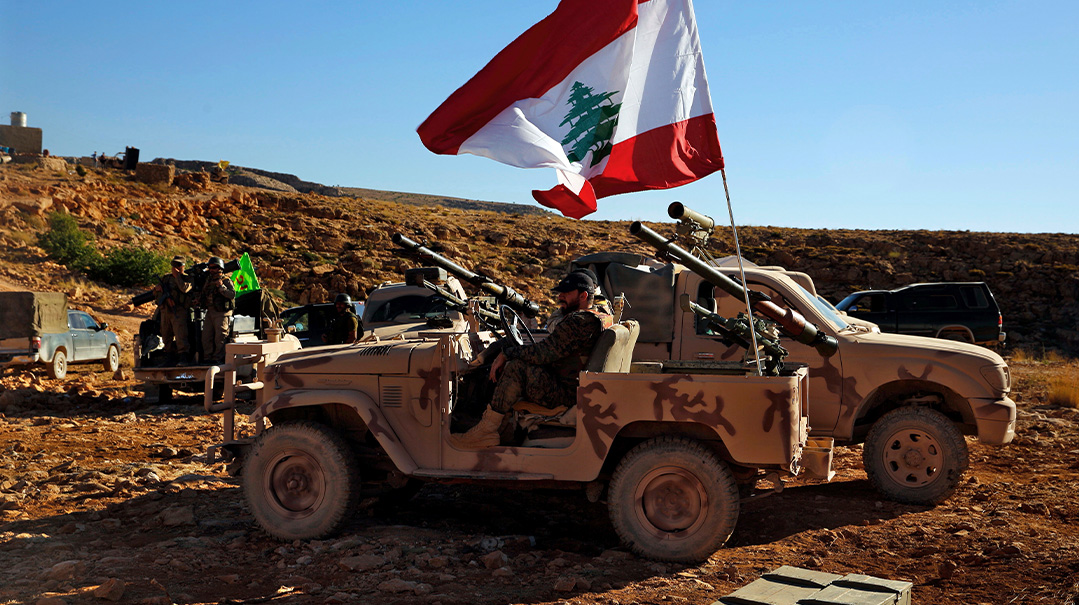
PROXY POWER Hezbollah and other Iranian affiliates are set to receive a windfall
No Rest for the Wicked
A memorandum drafted by a number of former top defense officials — including Maj. Gen. (res.) Amos Gilad, former head of the Military Intelligence Directorate’s research department; Brig. Gen. Dr. Itay Himnis, a senior intelligence officer; and Maj. Gen. Yaakov Amidror, former head of the National Security Council and military intelligence chief — calls for a new approach on Iran.
The authors criticize the current approach for dedicating enormous resources to preparations for an aerial attack on Iranian nuclear installations, at the expense of investing in tools for dealing with enemies closer to home, such as Hezbollah in Lebanon. Iran is dependent on its ring of forward military bases around Israel — in Lebanon, Gaza, Syria, as well as in Yemen and Iraq. But this is also its Achilles heel. Striking Iran’s forward military bases faster than they can be rebuilt needs to be a key element of a revised Israeli strategy.
According to this view, the weaker Iran’s forces encircling Israel, the weaker Iran’s deterrence, and the more vulnerable its nuclear program will be to attack. To preserve its hold on the region, Iran will have to expend enormous resources, forcing the regime to choose between holding on to power or continuing its regional expansion.
The authors believe that Israel’s reactive approach of rewarding quiet from Iran and its proxies with Israeli inaction is a fundamental mistake. Quiet is intoxicating and illusive, they say, recommending that the IDF take the offensive. According to the report, Iran relies on the perceived weakness of Israel’s home front — at which the missiles and rockets are directed — and the assumption that Israeli society shrinks from a conflict.
(Originally featured in Mishpacha, Issue 926)
Oops! We could not locate your form.

